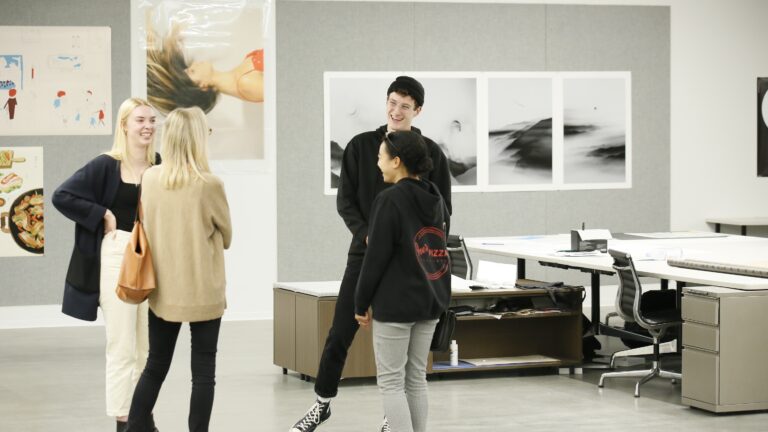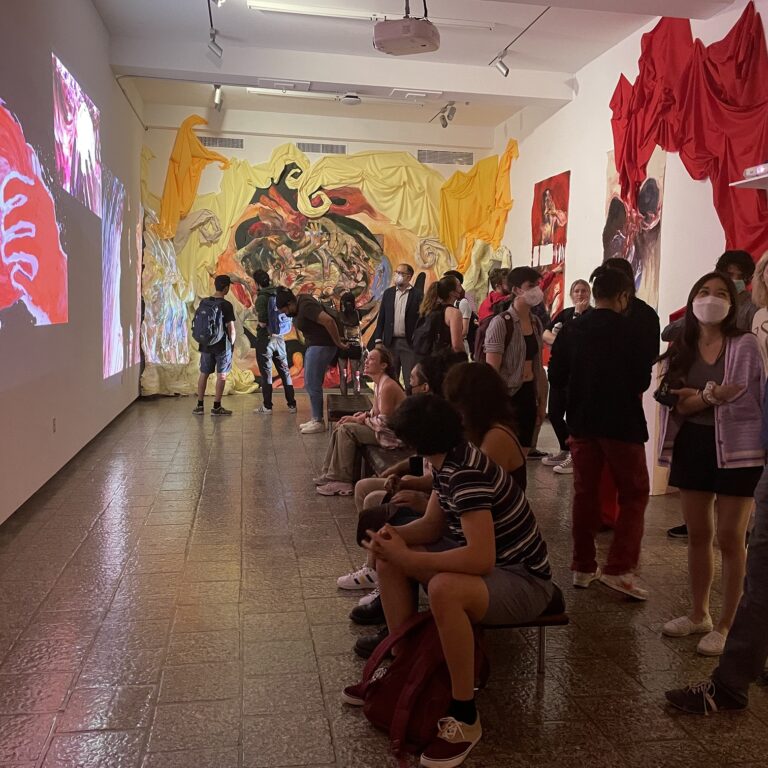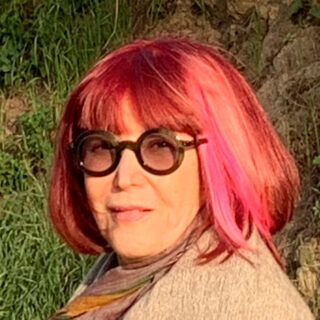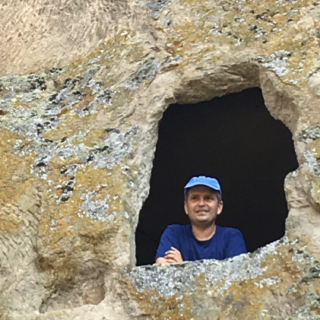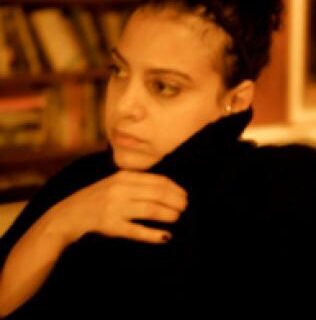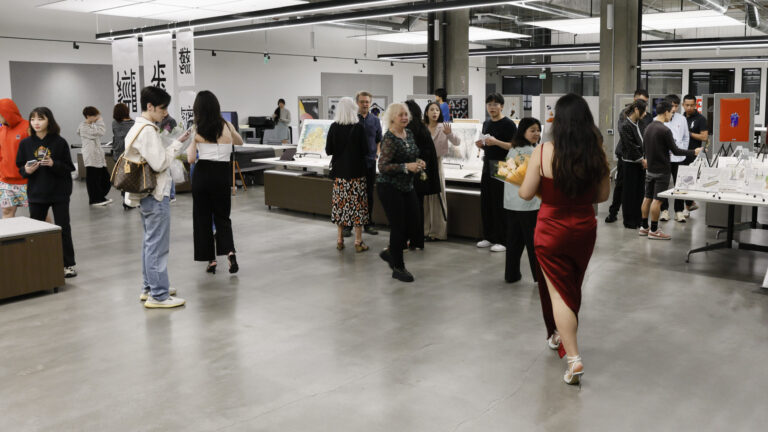
The MFA Design Degree Program
Application Deadline
The fall 2024 application deadline for the MFA Art program is Monday, January 15, 2024.
Roski’s MFA Design
This five-term, studio-based MFA Design program supports you in developing a unique and sustainable personal contemporary practice through a critical examination of issues, theories and ideas relevant to design and studio practice right now.
The MFA Design Experience
USC Roski enrolls a very small cohort of MFA Design candidates each year, who work closely together and with the school’s internationally acclaimed design faculty in the Roski Graduate Building—an expansive hub in the L.A. Arts District. You’ll also work with an expanded community of leading professionals—designers, artists, historians, critics, curators and culture makers.
Why Roski?
The MFA Design program offers curricular depth combined with USC Roski’s intellectual and artistic reach and the geographical influence of its position on the Pacific Rim and in one of the world’s major arts and design capitals.
-
With its postwar influx of prominent Bauhaus figures, Los Angeles has long had a strong footing in design. In the past several years the scene has blossomed, with a community of designers and a roster of events. With its location in the L.A. Arts District, the USC Roski Graduate Building is in the heart of a cultural hub with an international gallery and museum scene and hundreds of design and advertising companies nearby.
-
The USC MFA Design studios are housed in the Roski Graduate Building, a 15,000-square-foot retrofitted hub for artists, designers and scholars that encourages collaboration and cross-pollination. The building also serves as the site for most Roski public programming, including artist and designer talks.
In the Graduate Building, you’ll have access to a dedicated media editing room, a shared project space for the creation of expanded installations, and the Makerspace. You’ll also be assigned a large, open-concept workstation in the Graduate Building’s design studios—space that simultaneously encourages focus and collaboration.
-
You’ll work with visiting design professionals through a series of private conversations. Visits typically occur weekly, but may occur more or less frequently, as determined by individual student needs and faculty advisors.
The Visiting Designer Forum—linked to the school’s annual Roski Talks lecture series—features group discussions following public presentations by prominent artists, designers, writers, scholars and curators. As a first-year graduate student, you may also attend a closed-session seminar to engage in intensive dialogue on issues posed in the talk and have the opportunity to meet one-on-one with the visitor, present your work and benefit from their professional expertise.
The Designer in Residence Forum, offered in the spring, provides advanced MFA Design students a chance to engage in-depth with a visiting designer, artist, scholar, curator, historian or critic, including inviting the visitor to engage through studio visits, group critiques, seminars and individual mentoring sessions.
-
The MFA Design curriculum matches practical skills with a deep dive into theories and ideas. You’ll expand your knowledge and abilities in several areas, including:
- Your ability to analyze graphic design (along with architecture, fashion, art and other cultural production), communicate design ideas effectively, examine their formal elements, and engage in research to understand their contemporary and historical contexts.
- Your knowledge of the creative process, as exemplified by the study of specific works in design history, with a focus on understanding various creative methodologies.
- Your understanding of how political, cultural and social conditions affect the practice of all aspects of design. You’ll have the opportunity to see how practitioners in the field create work that speaks to specific audiences using innovative graphic forms.
- Your knowledge of the theoretical, historical and aesthetic decisions behind a range of work.
- Your connection with the field of design in order to enhance your ability to create work and establish a practice that is engaged with the world at large.
-
USC and the Roski School boast an array of cross- and interdisciplinary opportunities, offering an unparalleled environment for advanced study and practice. As a student, you’ll benefit from our collaborative partnerships with design firms and collectives, as well as formal affiliations with four notable museums of contemporary and Asian art.
Your Thesis
For your capstone, you’ll write a thesis providing a rigorously researched, and theoretically and historically grounded set of arguments relating to your proposed final project. You’ll also mount a practice component such as an exhibition, public presentation, community project or a proposal for a new course or new program, and join a cohort public presentation in the spring of your second year. Students are guided by a faculty committee, including a thesis supervisor and two other members.
The MFA Design Faculty
The Roski School’s Design professors and lecturers are a dynamic team with extensive experience. You’ll be on a first-name basis with professionals who’ve practiced their skills everywhere from L.A.’s agencies and studios to the international design scene.
Preparing for Professional Practice
Expand Your Vision
You’ll take at least 16 elective units to earn your MFA Design, and you can pick courses within Roski or from across USC’s schools. These include the University’s six top-ranked professional art schools, in addition to the Marshall School of Business, the Annenberg School for Communication, the Viterbi School of Engineering and the Dornsife College of Letters, Arts and Sciences.
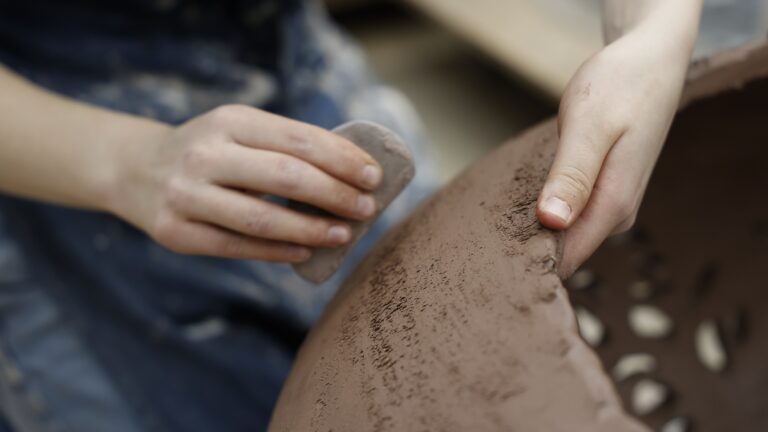
Opportunities
At Roski, Teaching Assistantships are awarded to MFA Design candidates on a competitive basis in the second year of the program. Compensation includes partial tuition remission, payment for TA duties and health benefits. TAs work with Roski professors on assigned tasks 10 hours weekly.
